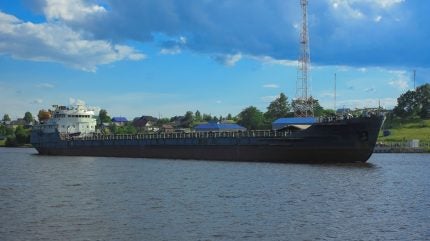
The so-called Russian ‘shadow fleet’, consisting of outdated tankers that transport Russian crude as a means to bypass international sanctions, poses a significant risk of causing a major oil spill in the Baltic Sea, claims a just-released Greenpeace report.
Greenpeace experts conducted a study analysing four years of vessel movement data, focusing on tankers leaving Russian Baltic Sea ports such as Primorsk, St. Petersburg, Ust-Luga and Vysotsk, and travelling along the German coastline.

Discover B2B Marketing That Performs
Combine business intelligence and editorial excellence to reach engaged professionals across 36 leading media platforms.
This is a primary route for ships transporting oil from Russian ports to international waters.
Following the EU’s decision to stop importing almost all Russian oil, Russia has increased its maritime transportation of crude oil. A set of sanctions prevents Western shipping companies and insurers from dealing with Russian oil exports priced above $60 per barrel.
However, Russia is circumventing these sanctions by utilising ships owned and insured by companies in countries that do not enforce them, and often lie outside of strict maritime regulations.
Greenpeace used special buoys equipped with GPS trackers to simulate the potential impact of an oil spill along oil tanker routes. The buoys’ movements illustrated the potential extent of an oil slick along the coast of Germany and pinpointed areas that could be at risk.

US Tariffs are shifting - will you react or anticipate?
Don’t let policy changes catch you off guard. Stay proactive with real-time data and expert analysis.
By GlobalDataThe study’s findings indicated that using ageing shadow fleet vessels to transport Russian oil presents a significant environmental danger to Germany and the entire Baltic region including the Gulf of Finland, where the ships originate.
The study suggested that coastal areas near the German cities of Rostock, Lübeck and Kiel would be in jeopardy if an oil spill occurred.
More worryingly, Greenpeace’s experts also believe an oil spill in the Baltic Sea is now inevitable.
“Since the invasion, Russian exporters have increasingly used older ships for crude exports from Baltic ports. In 2021, the average age of crude oil tankers was 8.9 years. However, by 2024, it had jumped to 16.6 years,” the report reads.
The number of oil tankers travelling westward along the Baltic coast in 2023 has notably risen compared with the period before the war. A considerable proportion of these vessels are now more than 15 years old.
As tankers age, they become increasingly vulnerable to wear and corrosion, thus increasing the environmental risk.





